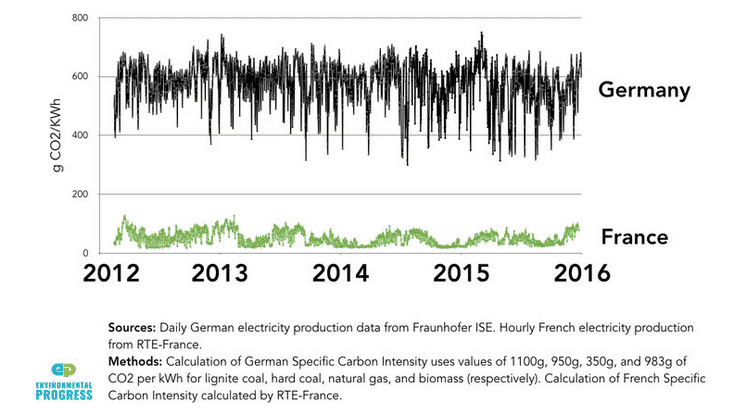I will start with a shoking yet true sentence, nucler energy is “greener” than renewable energy. But how?
Mnay people don’t know how to conceptualize their beliefs. They feel like we have the “bad vs good” standard when it comes to forms of energy, with nuclear falling in the bad side of the debate. Actually, if we put aside the propaganda and the enthusiasm for a moment we soon find out things are different.
However, we must make a premise, namely that renewable energies should not be painted as a dream to be abandoned. On the other hand, shedding light on the limits of green energies can only help us focus on how to break them.
Harsh truth
There are many examples of countries where the experiment of green energy has had unexpected results. It went from being accompanied by euphoric enthusiasm to a heavy step backwards. Among these, Germany, the world leader in diving into these experiments, has provided us with the most significant data. This is true because, among other reasons, in the last 20 years it has invested about 300 billion in renewables.
A 2018 study showed that in addition to producing much less energy than nuclear, solar energy produces much more CO2. Compared to the 45.75 TWh of energy produced by photovoltaic systems, the CO2 emitted is recorded at about 45 per kWh. Nuclear power, instead, compared to the 72.27 Twh of energy produced, released only 12 liters of CO2 per kWh.
I realize that such data can upset those who believe in green energy as the only way. The truth, however, is that the matter at hand is more complex than we think. Let’s see why.
For example, considering the case of France, which in the 1970s, after the two oil crises, decided to focus on nuclear power. 56 reactors’ construction fall in the last decade of the 90s (of which 32 by the beginning of the 80s) for a total cost of about 121 billion euros. This made France the nation with the highest percentage of nuclear energy produced (about 72%), and with CO2 emissions rates among the lowest in the world.

The “weakness” of renewables is the capacity factor, that is the reliability of energy sources and how long they last. In fact, even if it seems trivial, we must remember some facts. The sun does not shine everywhere 24 hours a day, the wind does not always blow everywhere and above all with the same intensity. Forgive me super simplification but it is to get straight to the point. On the contrary, a nuclear/coal power plant can work for months at maximum power without problems. In fact they must often compensate for the low intensity peaks left by renewables, otherwise there would be a real blackout.
Is it worth to destroy the environment while trying to save it?
All this, however, has not come as a surprise for some time now. Michel Schellenberger, green journalist and writer, also co-author of books such as “Apocalypse Never: Why Environmental Alarmism Hurts Us All (2020) – explains and clearly summarizes his reasons for backing off on renewables.

In summary, as he himself says, after starting campaigns for green energy, after believing that the obstacles to getting to green energy were fundamentally political, having obtained about 150 billion dollars between 2009 and 2015 as investments from the Obama administration, after several years he and his supporters have come to the conclusion that, as he himself said during a TEDx Danubia event in early 2019: “all the major issues regarding renewable energy are non-technical, but they are natural “.
In addition to these technical issues, Schellenberger also talks about the environmental and wildlife impact that some buildings have. The 3,500-acre solar power plant in California Ivanpah caused the displacement of thousands of animal species. Among these, desert turtles are particularly hit as most of the moved into captivity did not survive.

The most disturbing fact is this. Let’s consider the Diablo Canyon nuclear power plant in California. It would take 17 Ivanpahs to produce the same amount of energy os Diablo Canyon. If this is the path we are to take, God have mercy for those unlucky land turtles.
This information seems to be controversial and distant from the public. People who continue to see nuclear power as a demon have every right to do so. However, what I also believe is that people need to be informed properly in order to make wiser choices.
Thank you for your time and interest, hope you enjoyed reading.



